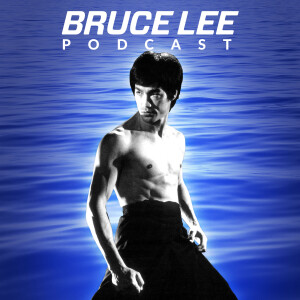
The six diseases of the mind are obstacles that you will confront on your path to wholeness and fluidity. The Six Diseases: The desire for victory The desire to resort to technical cunning The desire to display all that has been learned The desire to awe the enemy The desire to play the passive role The desire to get rid of whatever disease one is affected by All of these diseases occur when we seek outside validation. The desire for victory is the desire to win at all costs, usually at the cost of someone else. Wanting to win is not a bad thing, but when it overtakes you and blinds you to everything else is when it becomes a problem. It becomes not about the victory itself, but about coveting and becoming attached to that outcome. The desire to resort to technical cunning is the desire to outsmart, to be overly clever, to the exclusion of other tools of success. This is being showy, flamboyant and attached to form. The desire to display all that has been learned this is the desire to appear super knowledgeable and “wow” people with your knowledge. Essentially, this is a desire to be a know-it-all and be better than everyone else in the room. This creates no space for anyone else’s opinion. The desire to awe the enemy this is the desire to have your enemy to look at you with fear and wonder. This is an intimidation through show of force. The desire to play the passive role this is the desire to be unaccountable or to be the martyr. This is a desire to appear easy going, but it can be used as a weapon of guilt. The desire to get rid of whatever disease one is affected by. It is good to want to get rid of your disease, but you don’t get rid of it by denying the disease, you get rid of it by being with it. By integrating it you see that you are participating in this disease; the desire to get rid of the disease is a fantasy of being perfect without working through it. “Any technique, however worthy and desirable, becomes a disease when the mind is obsessed with it.” Desire can quickly lead to obsession and can keep away from your real life. “The deluded mind is the mind affectively burdened by intellect. Thus, it cannot move without stopping and reflecting on itself. This obstructs its native fluidity.” “We should not seek knowledge, but discover the cause of our ignorance.” Take Action: Any tool becomes a problem if you rely too much on it. How much do you rely on outside validation? What changes are you resisting? Are your moods based on outside validation? Create a list of the times where you experienced each of the Six Diseases. #AAHA This week our #AAHA shout out goes to Chinese contemporary classical composer, Tan Dun. He’s known for doing the scores for “Crouching Tiger, Hidden Dragon, ” and “Hero” and composing music for the 2008 Beijing Olympics medal ceremonies. A lot Dun’s music incorporates organic materials such as paper, water, and stone and is often inspired by traditional Chinese theatrical and ritual performance. Tan Dun won an Academy Award for his score of “Crouching Tiger, Hidden Dragon.” Dun continues to create audio-visual masterpieces, experimenting with theater, film, and opera. Tan Dun, thank you for your work and we think you’re awesome. #BruceLeeMoment This week our moment comes from listener Tony P.: “For Christmas several years ago, my wife bought me The Artist of Life. I could not put it down. For someone who could not finish even a short book before, I completed this book in record time. I also began to love Bruce for the philosophy and wisdom that he had. I have worked on putting his passion and commitment to excellence to work in all areas of my life. I now pick a couple of things I want to work on and I put my all into it. As Bruce would say, "I make mind up to do and I am going to do it, man!" Share your #AAHAs, #BruceLeeMoments, and #TakeAction progress with us at hello@brucelee.com Read full version of our show notes at BruceLee.com/podcast
view more
More Episodes
#9 Harmony
 2016-09-08
2016-09-08
 2016-09-08
2016-09-08
#8 Change
 2016-09-01
2016-09-01
 2016-09-01
2016-09-01
#7 Emotional Content
 2016-08-25
2016-08-25
 2016-08-25
2016-08-25
#6 Goals, Mistakes, Success
 2016-08-18
2016-08-18
 2016-08-18
2016-08-18
#5 Originate and Innovate
 2016-08-11
2016-08-11
 2016-08-11
2016-08-11
#4 Honestly Express Yourself
 2016-08-04
2016-08-04
 2016-08-04
2016-08-04
#3 Take Action!
 2016-07-28
2016-07-28
 2016-07-28
2016-07-28
#2 Be water, my friend.
 2016-07-20
2016-07-20
 2016-07-20
2016-07-20
Intro from Shannon Lee
 2016-07-13
2016-07-13
 2016-07-13
2016-07-13
0123456789
Create your
podcast in
minutes
- Full-featured podcast site
- Unlimited storage and bandwidth
- Comprehensive podcast stats
- Distribute to Apple Podcasts, Spotify, and more
- Make money with your podcast
It is Free
- Privacy Policy
- Cookie Policy
- Terms of Use
- Consent Preferences
- Copyright © 2015-2024 Podbean.com




